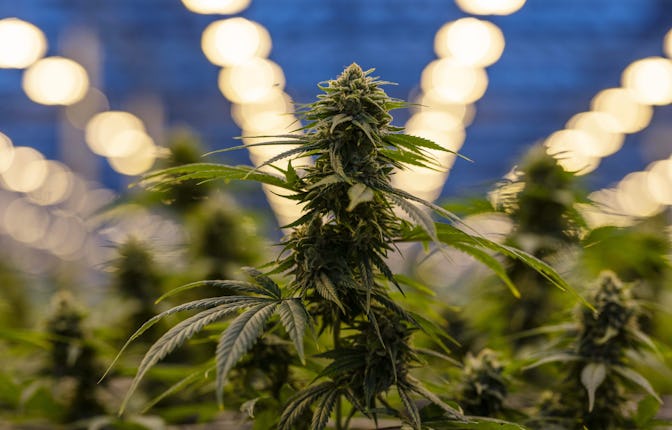An Oregon county just declared a state of emergency over illegal weed farms
The operations are tied to droughts and migrant worker abuse.

I used to think that legalizing weed would address problems in both the social justice and climate change arenas. At least for now, that’s just not the case. Even though weed is legal in Oregon, a county in that state just declared a state of emergency because illegal cannabis farms are sucking up all the groundwater and exploiting workers, according to CBS.
Oregon has had an underground cannabis farm problem since it legalized the sale and use of weed for recreational purposes all the way back in 2014. As many as 50% of weed farms in the state operate under the radar and register as legal hemp farms while secretly growing marijuana, per CBS. By not registering as marijuana farms, growers are able to avoid legal restrictions and sell to places outside of the state via the black market.
Beyond legal concerns is the reality of climate change and the fact that we live at a time when natural resources are very much limited. It turns out that unregulated farms end up using an absurd amount of water, which is especially egregious considering that the entire West Coast is experiencing a never ending drought. Those illicit farms have to steal water from rivers, aquifers, and other vital sources of H2O with disturbingly visible effects: A beloved creek in Oregon was sucked dry because illegal cannabis farms literally stole all of its water, according to the Associated Press.
Jackson county in Southern Oregon, where the state of emergency was declared, became one of the most popular places for illicit cannabis growers. In a letter to the state’s Governor on Wednesday, the Jackson County Board of Commissioners called the problem of illegal weed farms an “imminent threat to the public health and safety of our citizens.” It’s not really a sentence I would have ever associated with weed farms, until now. Jackson County also asked for the state to send them more money to hire detectives, law enforcement and water resources staff to crack down on the illegal operations, since it was only able to respond to one-third of complaints, according to the County Board’s letter.
As if all of that wasn’t enough, workers in illegal Oregon farms have been found working in horrible conditions. In Josephine County, police raided a farm in August and found seriously ill people sleeping on cardboard mats, according to the Oregonian. Authorities believed that some of the migrant workers were trafficked and forced to stay on the farm.
Clearly, legalizing weed won’t end every problem associated with it. We’ll also need to tackle climate change, human trafficking, and the reality that Black people are still incarcerated over nonviolent weed crimes, and the way our country creates the conditions for migrants to be exploited. When we come to terms with all that, maybe progress can be made.